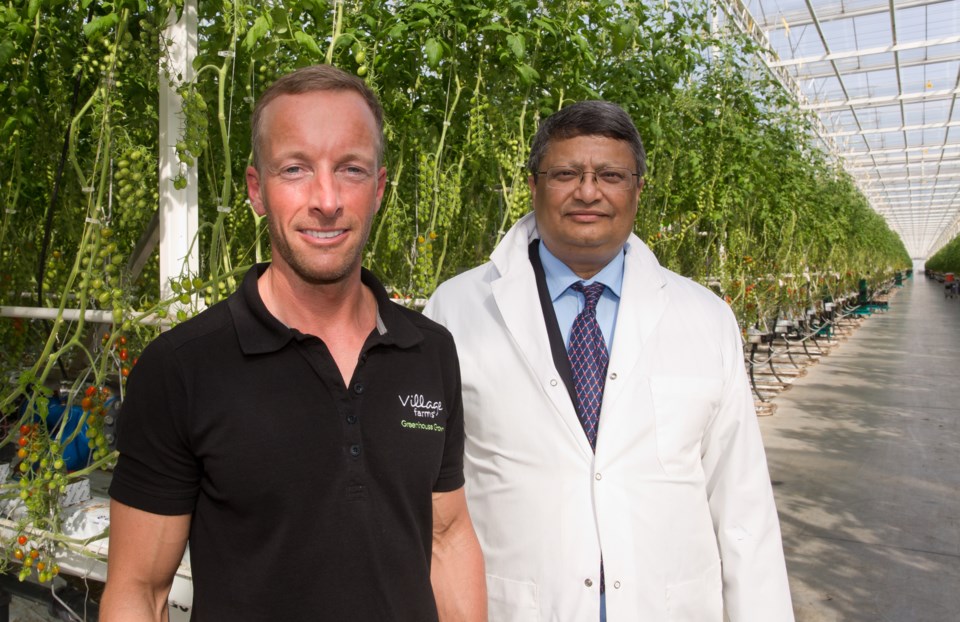A Ladner greenhouse celebrated the introduction of a groundbreaking renewable energy technology last week.
Officials from the agricultural sector, government agencies and several energy firms were on hand at Village Farms on 80th Street last Wednesday for a ribbon-cutting ceremony for an on-site quad-generation project, the first ever for a greenhouse.
Using fuel cell technology, the "clean-tech" project processes landfill gas for the commercial production of renewable heat and food grade carbon dioxide (CO2) to benefit the Village Farms operation. It also produces electricity and hydrogen for additional commercial markets.
The $7.5 million project, which received funding from several agri-food agencies, was a partnership among Village Farms, Quadrogen Power Systems Inc., FuelCell Energy Inc. and the National Research Council of Canada.
It's said to be the most advanced greenhouse technology ever achieved using fuel cell technology. It was noted the fuel cell utilizes a highly efficient electro-chemical process to generate power that avoids the emission of virtually any pollutants, due to the absence of combustion.
"What this technology has the potential for doing for us is taking the landfill gas, creating CO2, which we can then put in the greenhouse, and reduce our consumption of natural gas," said Stephen Ruffini, chief financial officer of Village Farms International.
Village Farms was already on the cutting edge a dozen years ago when it became the first local greenhouse to add co-generation, partnering with Maxim Power to utilize landfill gas as a heat source. Co-generation involves using a combined heat and power engine to produce thermal and electric energy. The surplus electricity produced is sold on the grid to B.C. Hydro.
The quad-generation project is the next step, creating not only power and heat, but also CO2 and hydrogen.
Due to the increased interest in co-generation, the Ministry of Agriculture, working with agricultural producers and B.C. Hydro, has established a set of criteria on locations co-generation could be considered, as well as the size and scale of facilities relative to the size of farm operations.
Delta council this year approved local bylaw amendments to allow greenhouses to add co-generation facilities. Previously, they weren't permitted in Delta's agricultural zone, although council had been considering applications on a case-by-case basis.
Meanwhile, as more green local operations are getting into the co-generation business, other Delta farms are expected to start adding on-site waste-to-energy facilities using animal waste. The first example occurred this year when council approved an application by Seabreeze Farm Ltd. on 112th Street to build a biogas facility, which includes an anaerobic digester that processes on-farm agricultural material, such as manure, crop waste and silage, as well as off-farm non-agricultural feedstocks, including fats, oils and greases.
The Agricultural Land Commission also approved that application.



